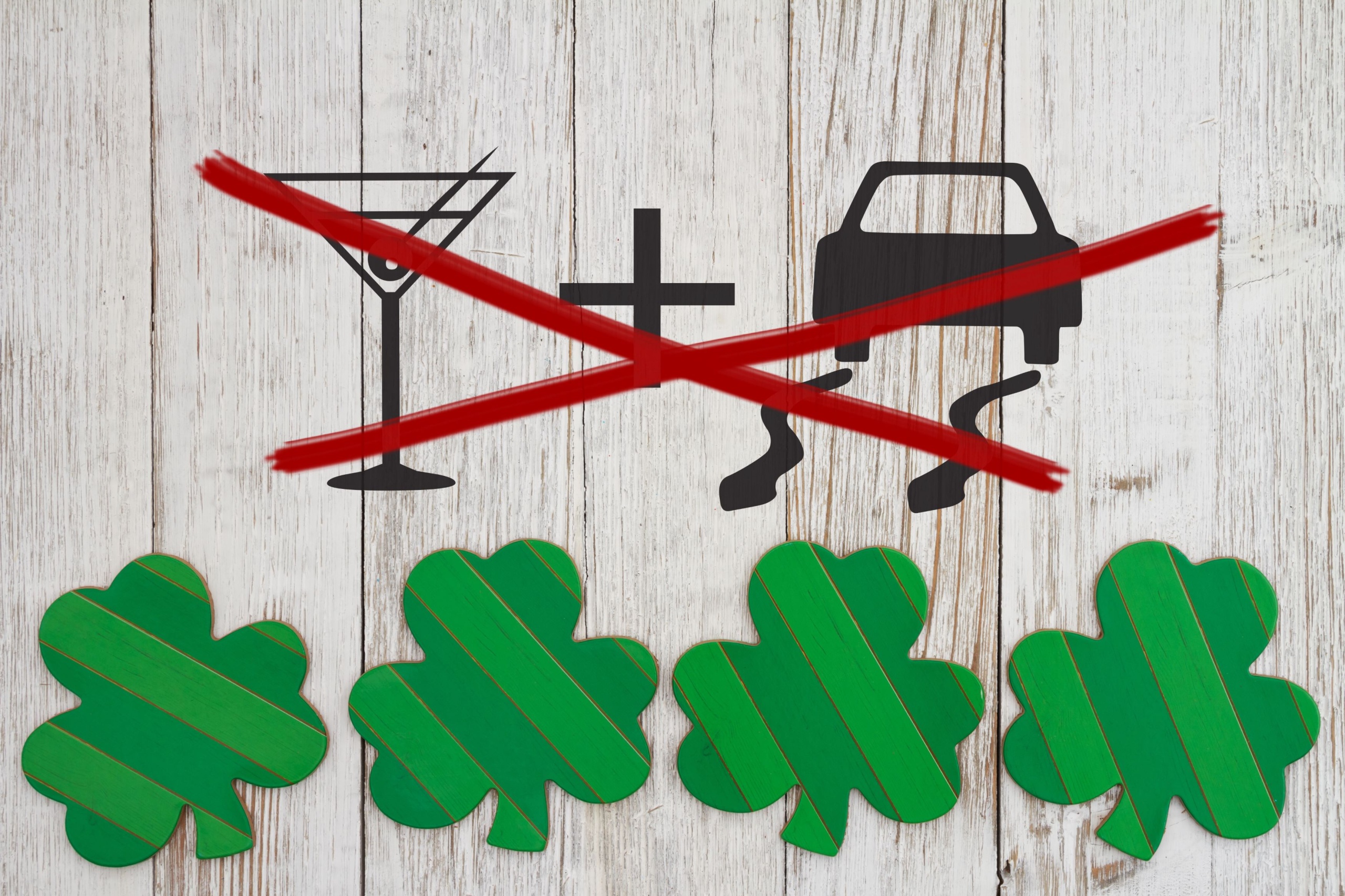Originally posted on: https://ciecka.com/the-consequences-of-drunk-driving-on-st-patricks-day/
The Stark Reality of St. Patrick’s Day DUI Statistics
The celebration of St. Patrick’s Day brings with it a darker reality that casts a long shadow over the festivities: a significant spike in drunk driving incidents. This joyous occasion, marked by widespread celebrations and social gatherings, unfortunately, also correlates with an increase in DUI (Driving Under the Influence) cases, making it one of the most dangerous times to be on the road. National Highway Traffic Safety Administration (NHTSA) statistics paint a grim picture, revealing that the holiday period is marred by a disturbing rise in DUI-related fatalities. The allure of festive gatherings often leads to excessive alcohol consumption, and the decision by some to drive afterward contributes to a surge in preventable accidents and deaths. The sobering figures highlight the urgent need for awareness and intervention to combat drunk driving during this time.
The data is not just numbers; they represent lives lost and families shattered by the consequences of drunk driving. According to reports from Traffic Safety Marketing, hundreds of lives are lost annually in crashes involving drunk drivers around St. Patrick’s Day. These incidents are a tragic reminder of the potential consequences of mixing alcohol and driving. The NHTSA emphasizes the severity of the issue through its press releases and campaigns, urging celebrants to think twice before getting behind the wheel after drinking. The message is clear: the celebration of heritage and culture should not come at the cost of human lives. Law enforcement agencies across the country respond by increasing patrols and setting up DUI checkpoints in an effort to deter impaired driving and save lives. Despite these efforts, the persistence of drunk driving incidents during St. Patrick’s Day highlights the need for continued education, stricter enforcement of DUI laws, and a collective commitment to safer celebration practices.
Understanding DUI Laws and Penalties
Understanding DUI laws and the penalties for violating them is crucial, especially in the context of high-risk periods like St. Patrick’s Day. Across the United States, driving with a blood alcohol concentration (BAC) of 0.08% or higher is considered illegal and constitutes a DUI offense. However, it’s important to note that DUI laws can vary significantly from state to state, with some jurisdictions imposing even stricter standards for commercial drivers and individuals under the age of 21. The intent behind these laws is clear: to reduce the incidence of drunk driving and its devastating consequences. On St. Patrick’s Day, when the temptation to indulge and drive may be higher, understanding these legal boundaries is more important than ever. Law enforcement agencies are keenly aware of the increased risk and often ramp up their efforts through heightened patrols, DUI checkpoints, and public awareness campaigns aimed at deterring impaired driving.
The penalties for DUI convictions are designed to be severe enough to deter individuals from making the perilous decision to drive under the influence. These penalties can range from fines and license suspension to mandatory alcohol education programs and even imprisonment for repeat offenders or cases resulting in injury or death. The severity of the punishment typically escalates with each subsequent DUI offense, reflecting the increased risk posed by habitual offenders. Beyond the immediate legal repercussions, a DUI conviction can have long-lasting effects on an individual’s life, including increased insurance rates, employment difficulties, and social stigma. The legal system’s approach to handling DUI offenses underscores the seriousness with which drunk driving is regarded and aims to impress upon the public the importance of responsible alcohol consumption, especially during festive occasions like St. Patrick’s Day. The overarching goal is to foster a safer environment for all road users, ensuring that celebrations do not end in tragedy.
The Importance of Legal Representation
The importance of legal representation in the aftermath of a drunk driving incident cannot be overstated. Victims of such accidents often find themselves facing not only physical injuries but also the daunting task of navigating the complex legal system to seek justice and compensation. This is where the expertise of personal injury attorneys and
car accident lawyers becomes invaluable. These legal professionals specialize in understanding the intricacies of DUI laws and the rights of victims, providing guidance and support through every step of the legal process. From filing claims and handling paperwork to negotiating with insurance companies, personal injury lawyers work tirelessly to ensure that victims receive the full compensation they are entitled to. This includes coverage for medical expenses, rehabilitation costs, lost wages, and compensation for pain and suffering. The goal is to alleviate the financial burden on the victim and their family, allowing them to focus on recovery.
Moreover, legal representation plays a critical role in holding the responsible parties accountable for their actions. Personal injury attorneys are skilled in building strong cases that highlight the negligence of the drunk driver, often utilizing evidence such as police reports, witness statements, and expert testimony. By presenting a compelling case in court or through settlement negotiations, lawyers not only secure compensation for their clients but also contribute to broader efforts to deter drunk driving. The legal repercussions faced by offenders serve as a powerful reminder of the consequences of impaired driving, reinforcing the message that such behavior will not be tolerated. In this way, personal injury law firms not only advocate for individual victims, but also play a significant role in promoting public safety and responsible driving practices. The presence of skilled legal representation like an
auto accident attorney can make a profound difference in the outcome of a DUI case, ensuring that justice is served and that victims are given a voice.
The Role of Personal Injury Law Firms
Personal injury law firms play an indispensable role in the aftermath of drunk driving incidents, particularly during high-risk celebrations like St. Patrick’s Day. These firms are not just legal representatives; they are staunch advocates for the rights and well-being of individuals who have suffered due to the negligence of others. By offering expert legal guidance and support, personal injury attorneys ensure that victims receive the compensation they deserve for their injuries, losses, and suffering. This compensation often covers medical bills, lost wages, rehabilitation costs, and other damages, providing crucial financial relief and support to victims and their families during a challenging recovery period.
A prime example of the impactful work done by personal injury law firms is seen in the efforts at The Law Offices of Vincent J. Ciecka. Our firm has a strong track record of representing victims of drunk driving accidents and securing justice on their behalf. One notable
car accident settlement handled was a rear end collision caused by a drunk driver resulting in injury, which took place in Gloucester County, NJ. This case highlights the firm’s commitment to holding negligent parties accountable and our ability to navigate the complexities of personal injury law to secure favorable outcomes for its clients. Through meticulous investigation and negotiation, we successfully obtained a $650,000 settlement that addressed the victim’s needs post-accident and emphasized the serious consequences of drunk driving. The settlement not only provided the victim with the necessary resources for her recovery, but also served as a stark reminder of the legal and financial repercussions that can result from driving under the influence.
Navigating Dram-Shop Liability in DUI Cases
In the aftermath of DUI incidents, the focus often lands squarely on the driver’s actions. However, the accountability may extend beyond the individual to include bars, establishments, or even homeowners who provided alcohol to the driver. Recognized under “dram-shop laws,” these regulations aim to curb DUI accidents by holding such providers accountable when they serve alcohol to visibly intoxicated individuals or minors, who then cause harm to others. The premise is that these entities should recognize when it is unsafe for a person to drive and refrain from further serving them alcohol. These laws offer victims of DUI accidents an additional avenue for seeking justice and compensation, especially critical in cases where the driver’s insurance coverage falls short of covering the damages incurred.
Dram-shop liability underscores the shared responsibility in preventing DUI accidents, emphasizing that the consequences of over-serving alcohol can be just as severe and impactful as the act of driving under the influence itself. For victims, this can mean a significant source of recovery for their injuries or losses, especially in tragic incidents leading to catastrophic injuries or fatalities. The pursuit of claims under dram-shop laws requires a thorough and immediate investigation into the circumstances surrounding the alcohol consumption of the DUI driver. This includes collecting evidence from the scene, eyewitness testimonies, and any available surveillance footage that can establish the establishment’s or individual’s negligence in serving the driver.
Preventive Measures and Safe Celebrations
Preventive measures and the promotion of safe celebration practices are crucial in mitigating the risk of drunk driving incidents, particularly during festive occasions like St. Patrick’s Day. Awareness and education play key roles in this endeavor, as they help to inform the public about the dangers of impaired driving and the importance of making responsible choices. Law enforcement agencies, along with safety advocates, emphasize the use of alternative transportation options for those who choose to drink. Designated drivers, public transportation, and ride-sharing services are all viable options that can prevent the need for individuals to get behind the wheel after consuming alcohol. These preventive strategies are not only about avoiding legal repercussions but also about safeguarding the community and ensuring that celebrations do not lead to tragic outcomes. The collective effort to promote these safe alternatives is a testament to the broader societal commitment to road safety and responsible behavior.
In addition to leveraging alternative transportation options, community initiatives and public awareness campaigns play a significant role in encouraging sober celebrations. Organizations and safety advocates often launch campaigns around St. Patrick’s Day, offering tips for hosting safe parties, such as providing non-alcoholic beverage options and arranging transportation for guests. These efforts are complemented by increased law enforcement activities, including DUI checkpoints and patrols, aimed at deterring impaired driving. The message behind these initiatives is clear: the responsibility for preventing drunk driving incidents lies not only with individuals but also with the community at large. By fostering an environment that prioritizes safety and responsible celebration, it is possible to reduce the incidence of DUI-related accidents and ensure that St. Patrick’s Day remains a joyous occasion for all. The commitment to preventive measures and safe celebrations reflects a broader societal effort to combat drunk driving and its devastating consequences, making the roads safer for everyone.
A Call to Action: Ensuring Safer Celebrations and Roadways
In conclusion, St. Patrick’s Day, with its rich cultural significance and widespread celebrations, also brings to light the critical issue of drunk driving and its dire consequences. The legal landscape surrounding DUI offenses is designed to deter reckless behavior and protect the public, but it is the collective responsibility of individuals, communities, and legal professionals to ensure these measures are effective. As we embrace the festivities, it’s imperative to remember the importance of celebrating responsibly. Utilizing alternative transportation options, planning safe events, and understanding the legal implications of drunk driving are essential steps in preventing DUI incidents. This St. Patrick’s Day, let’s commit to making responsible choices that ensure the safety and well-being of ourselves and others. Together, we can turn a day of potential risk into a celebration of culture and community, free from the shadow of preventable tragedy.
Resources:
- Patrick’s Day Drunk Driving – Traffic Safety Marketing
- Don’t Test Your Luck This St. Patrick’s Day – NHTSA
- Patrick’s Day Drinking & Driving Resource Center – Scram Systems




